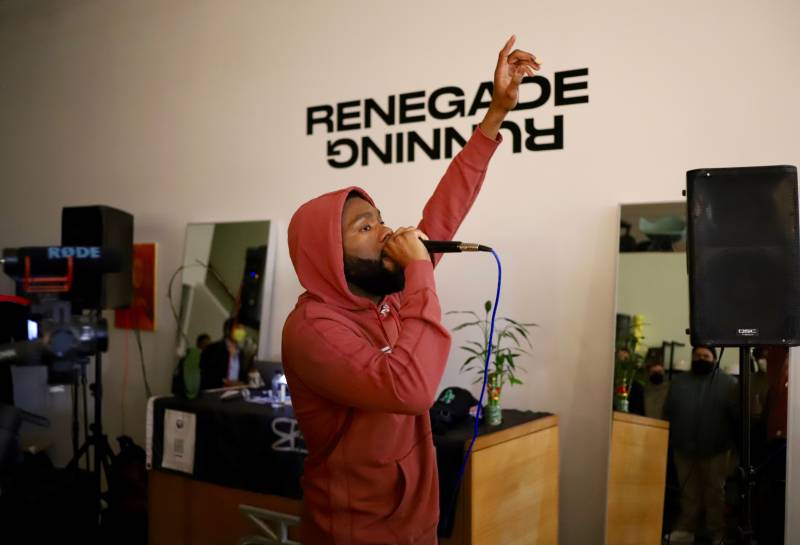In a perfect multiverse, the best part about Oakland’s First Fridays is the ending: after a late-night street party, while holding a heavy plate of barbecue links, green beans and mac and cheese on the walk back to your car.
But that comfort isn’t always the case, especially lately. Expensive city fees have made it more difficult to throw events since the start of the pandemic, and residents are on edge after seeing a rise in gun violence this past year. Still, there are powerful moments of healing and solidarity to be found if you know where to look—and a mosaic of local advocates have tirelessly labored to preserve positive outlets, even if it all seems hidden from plain view.
One supplier of vivacity dedicated to keeping Oakland real? Nimsins, an emerging hip-hop artist and sage observer of his hometown’s complex, sometimes contradictory dynamics.
“I’m from East Oakland,” he proudly tells me outside of Renegade Running, a downtown sneaker shop where a crowd gathers to see him rock the mic. “It’s different. I’m not out here [in this neighborhood] much, but things keep changing.”
Minutes before performing, Nimsins is chilling outside, observing the scene and exchanging daps and laughs with friends. They’ve all driven from the farthest end of the city to celebrate Nim’s recent rise in the rap world, capping off a solid run of two albums, a few EPs, and a handful of singles since 2017. He’s all smiles and clever jokes—something he maintains around his folks—but switches modes once he begins to deliver his truth to the audience.
“You don’t know how it feel [when] construction all in your hood,” he raps from “Don’t Know How It Feels” off his 2021 project, More To Life. The intimately packed listeners sway along, nodding heads, attentively tuned into his energy.
The song is hyper-appropriate for Oakland in 2022, where a soon-to-open burger joint glows with neon signage across the street and two police cruisers are parked in front. Their presence indicates a shifting city, which continues to invest into the development and protection of certain areas and populations while neglecting others. It’s something Nimsins grapples with in his life and music, while seeking to highlight the solidarity that simultaneously resides in his city.


